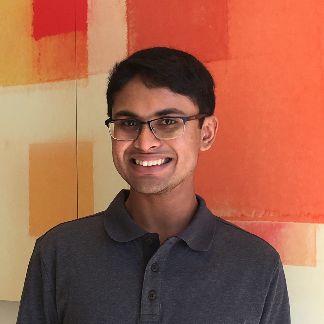Campus News
Nitin Vidyasagar
Nitin Vidyasagar is looking forward to graduation and a new position in a cell biology lab. Over the next two years, he will assist UC Berkeley Assistant Professor Samantha Lewis in exploring mechanisms cells use to maintain mitochondrial DNA.

Nitin Vidyasagar is looking forward to graduation and a new position in a cell biology lab. Over the next two years, he will assist UC Berkeley Assistant Professor Samantha Lewis in exploring mechanisms cells use to maintain mitochondrial DNA.
The deep dive into genetics will give Vidyasagar experience and time to decide between a career in research or in medicine—fields he was introduced to during his time at UC Santa Cruz.
In his first year on campus, Vidyasagar thought he might major in literature, but STEM courses were also exciting.
“Susan Strome’s genetics class was what sold me on biology,” Vidyasagar says.
He became an undergraduate researcher in Assistant Professor Joshua Arribere’s lab, studying how cells ensure quality control during gene expression.
“We have all these intricate microscopic events that our cells fine-tune and regulate,” Vidyasagar says. “What attracts me is exploring these beautiful and innate processes that we take for granted.”
Amid the rigor of performing research, the experience has been “wonderful.”
“It’s intimidating but you learn robust knowledge and techniques,” Vidyasagar says. “The Arribere Lab gave me a safe and supportive space to learn what it meant to be a scientist and wrestle with complex concepts. It feels like your mentors are there every step of the way.”
In sophomore year, Vidyasagar became an HIV peer test counselor at the Student Health Outreach and Promotion program. Over the next three years he organized events to promote and destigmatize HIV testing, especially focusing on disparities in HIV treatment for Latinx and African, black, and Caribbean-identified students.
As a senior, he led a project to establish a new testing site that was more accessible to students on the west side of campus. Vidyasagar says getting to help fellow students through empathy and listening is why he is interested in a possible medical career.
He is excited to build on the knowledge he has obtained at UC Santa Cruz, and the Ph.D. or M.D. he aims to achieve will be a tool he can use to promote diversity and increase LGBTQIA representation in STEM fields.
“Pursuing those degrees will equip me with tools to further our understanding of cellular processes and physiology,” Vidyasagar says. “They also mean more ability to enact change from within and meet the needs of our community.”